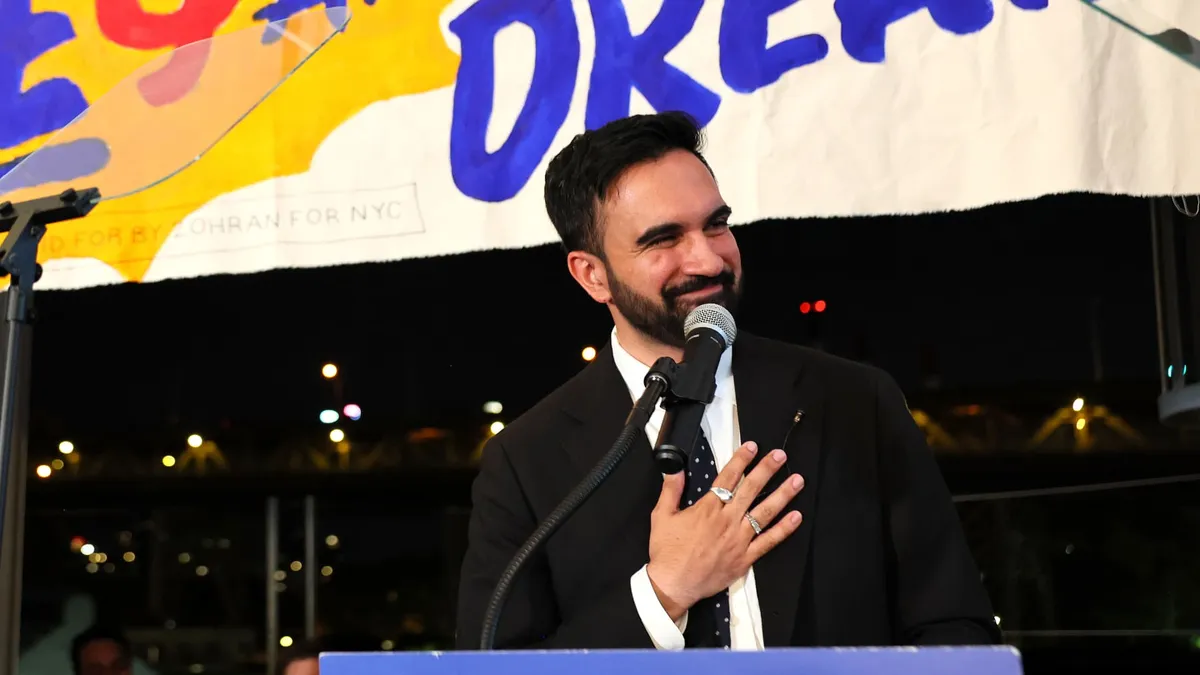
Wall Street's discontent with Zohran Mamdani is palpable following his surprising victory in the Democratic primary, positioning him as a strong contender for the next New York City mayor. High-profile investors and business leaders in New York are expressing significant concern over Mamdani's potential to disrupt the financial landscape with policies that could lead to increased tax hikes and stricter regulations, fundamentally challenging the corporate and investment interests that thrive within the city.
Philippe Laffont, the founder of hedge fund Coatue Management, voiced his apprehensions during a recent CNBC interview. He indicated that a Mamdani win could trigger a new wave of wealthy investors leaving New York in search of more favorable tax environments, such as those found in Florida and Texas. "Some people are going to, for sure, go," Laffont stated on CNBC's Squawk Box following the news of former Governor Andrew Cuomo's concession in the Democratic nomination race. He cautioned that the election is not yet finalized and speculated on the possibility of Cuomo re-entering the race as an independent candidate.
At just 33 years old, Mamdani's advocacy for socialism and the redistribution of wealth starkly contrasts with Wall Street's preference for unrestrained capitalism. He has proposed taxing the ultra-wealthy, financial transactions, and passive income such as dividends, along with endorsing a state-level wealth tax and increased marginal income tax rates for high earners. These proposals have raised alarm among financial elites who prioritize policies that promote growth through deregulation and lower taxes.
Notable figures in the financial sector have also expressed their disappointment. Bill Ackman, CEO of Pershing Square Capital Management, revealed that he awoke feeling "a bit depressed" about Mamdani's victory and is now exploring the logistics for another candidate to enter the race. Similarly, Lawrence Summers, former Treasury Secretary and Harvard University president, articulated his deep concerns about Mamdani's nomination, citing alarm over the Democratic National Committee's future and the potential impact on the country.
The stock market has already begun to reflect the anxiety surrounding a Mamdani-led New York City. Shares of Flagstar, a regional bank with ties to the New York real estate market, plummeted nearly 4% recently. Additionally, office-focused real estate stocks suffered significant declines, with SL Green Realty down more than 6% and Vornado Realty Trust falling nearly 7%. Mamdani's support for universal rent control could further complicate the financial landscape, as the New York City mayor has the authority to influence rent regulations that affect millions of residents and the profitability of multi-family rental properties.
Jim Bianco, president and macro strategist at Bianco Research, succinctly captured the sentiment among some observers, stating, "It appears that NYC is electing to commit suicide by Mayor." As Mamdani's solutions often hinge on taxpayer-funded spending, the business community finds itself increasingly apprehensive. Kathryn Wylde, president of the Partnership for New York City, expressed concern on CNBC, stating, "Terror is the feeling," while acknowledging that New York has many positive aspects. However, she noted that losing confidence in the mayor could rapidly change the city's economic outlook.
Wylde pointed out that many of former Governor Cuomo's strongest supporters were located in Manhattan's Upper East Side, home to numerous high earners and business leaders. This demographic historically has favored candidates who align with their economic interests. The Associated Press reported that Cuomo garnered over 70% of first-choice votes in several precincts within this neighborhood. In 2013, the election of Bill de Blasio also raised concerns among the financial elite, but he managed to alleviate fears by engaging directly with business leaders before implementing significant reforms.
Laffont remains cautiously optimistic, recalling that despite the challenges faced during de Blasio's tenure, New York's resilience prevailed. "We had Mayor de Blasio for eight years. New York is really strong. I'm hopeful the same will happen," he concluded.